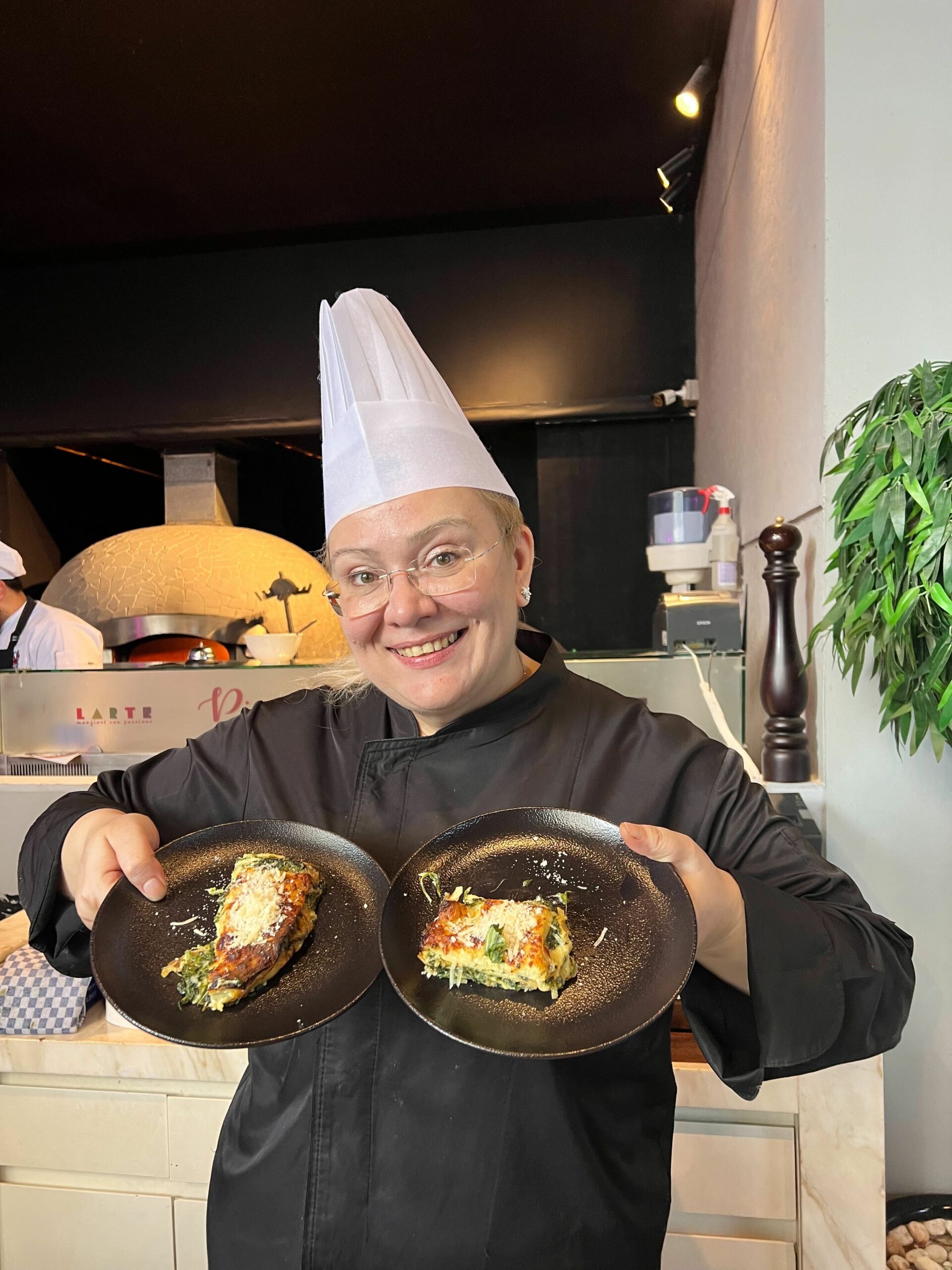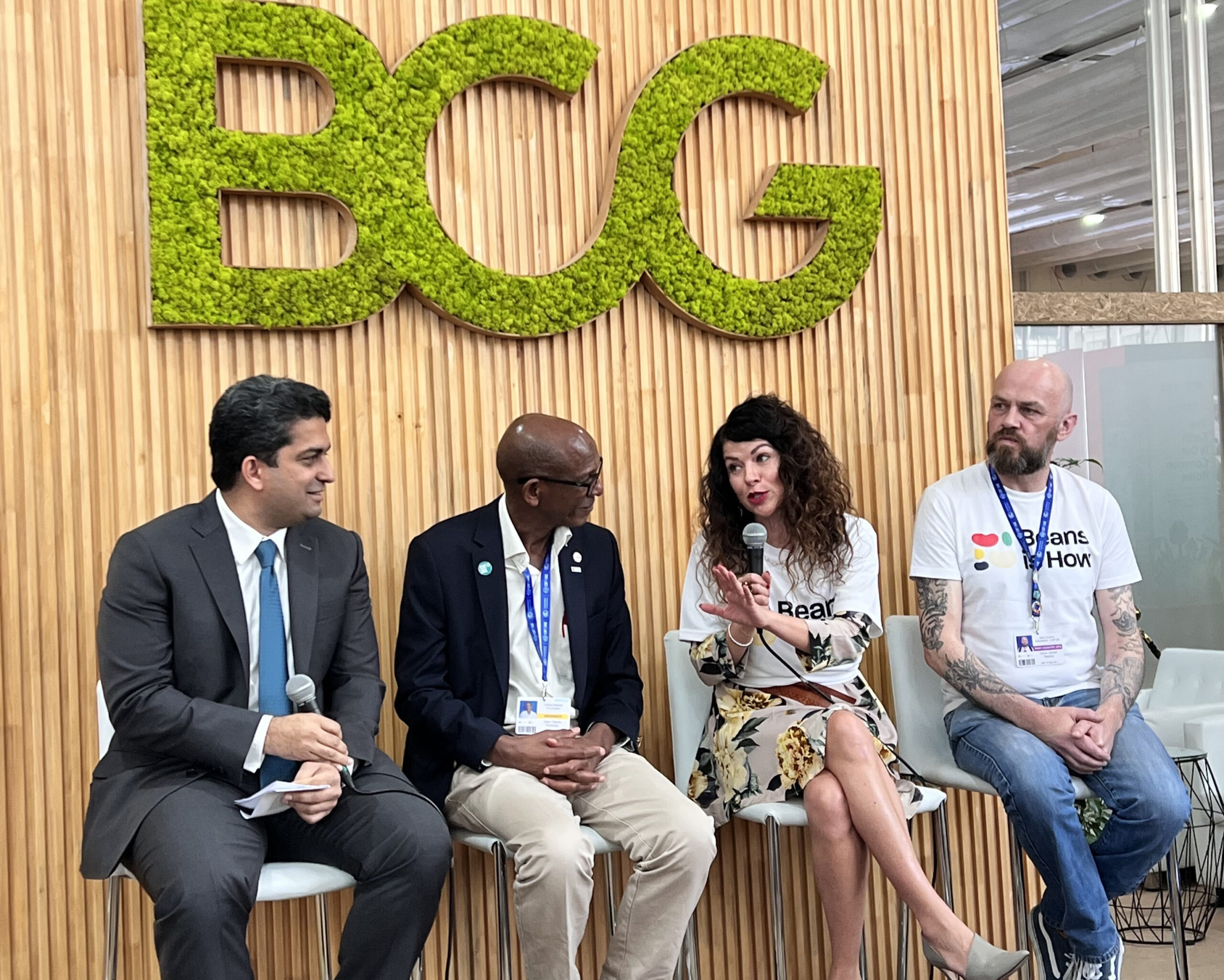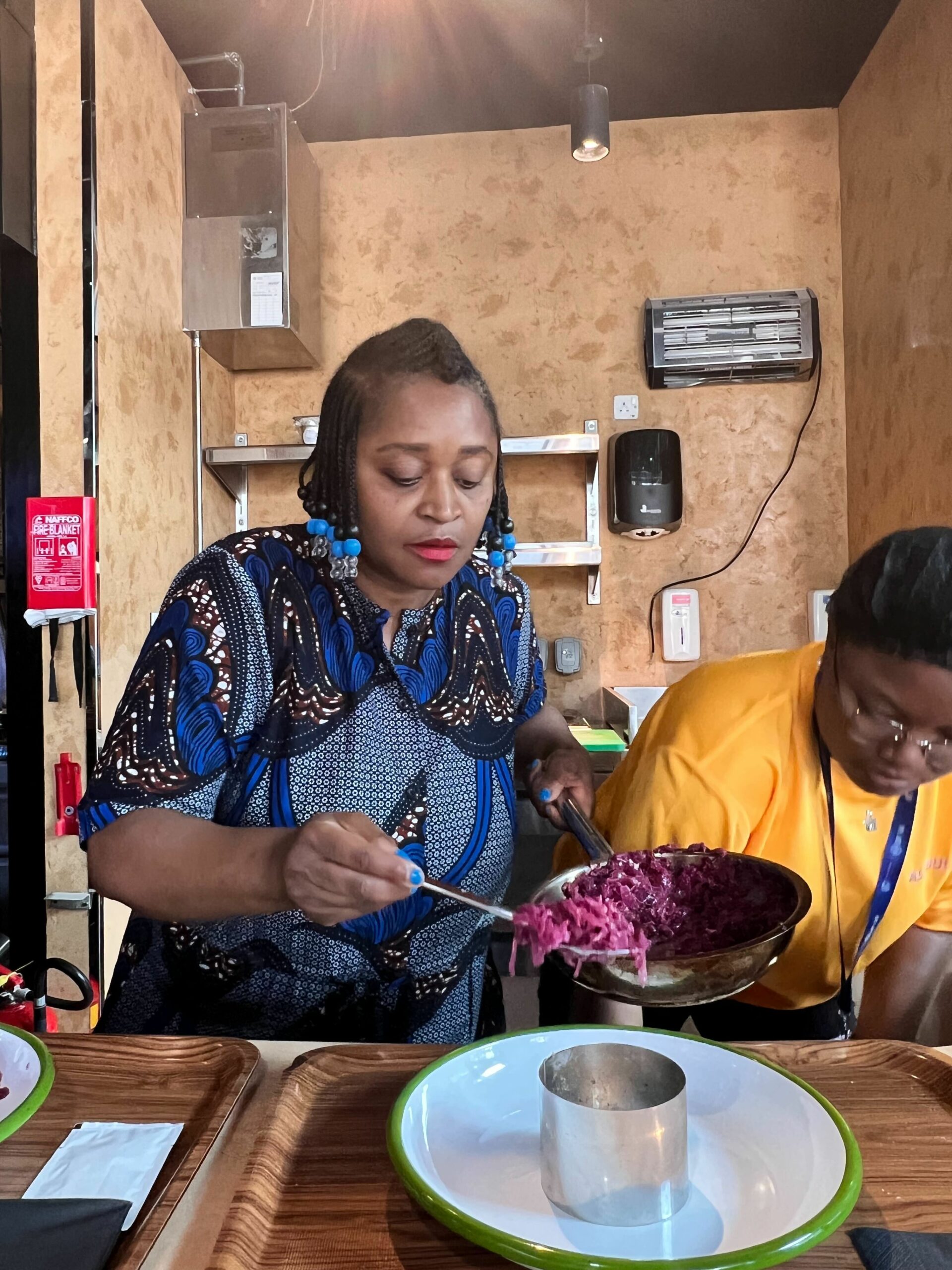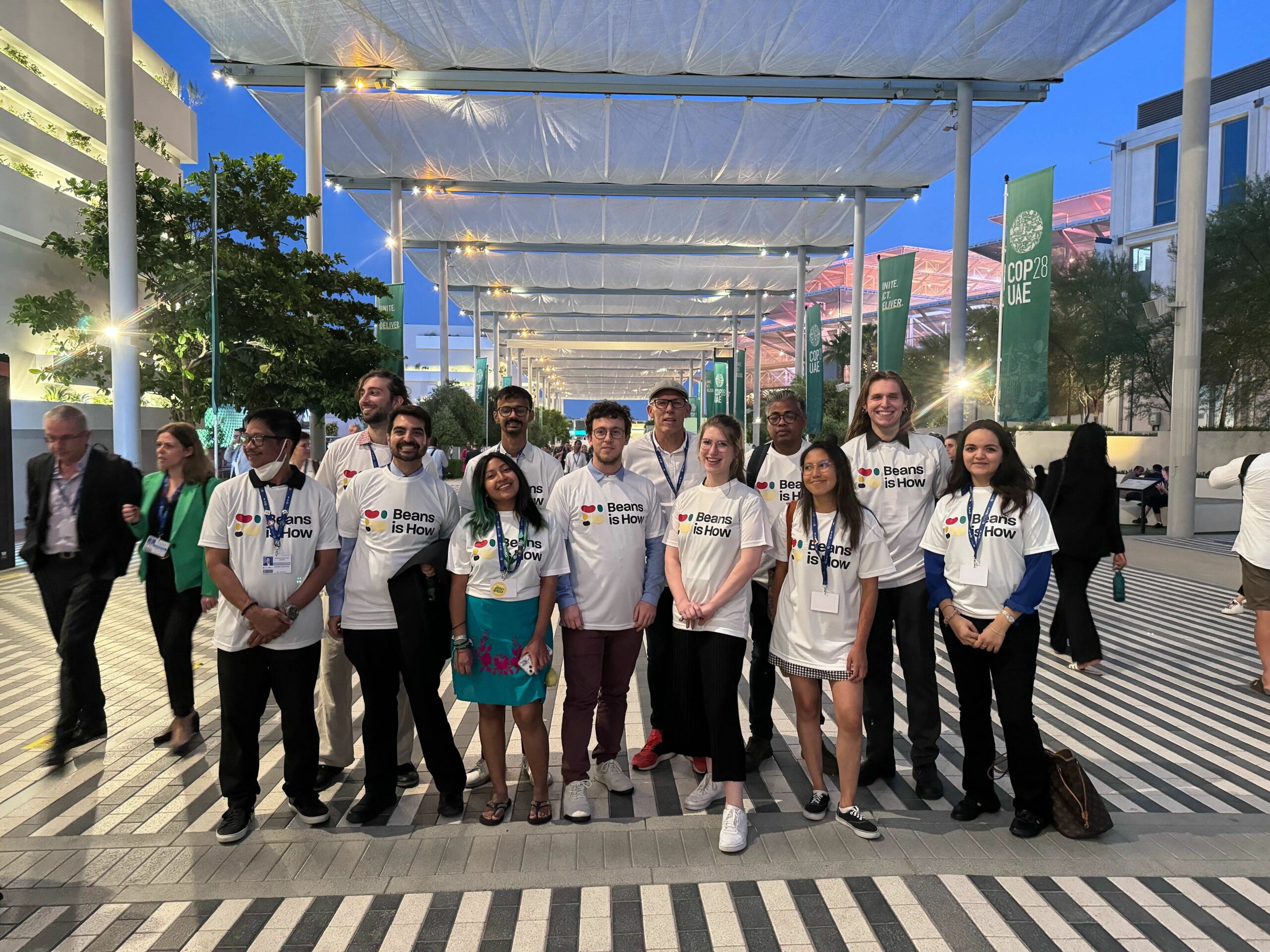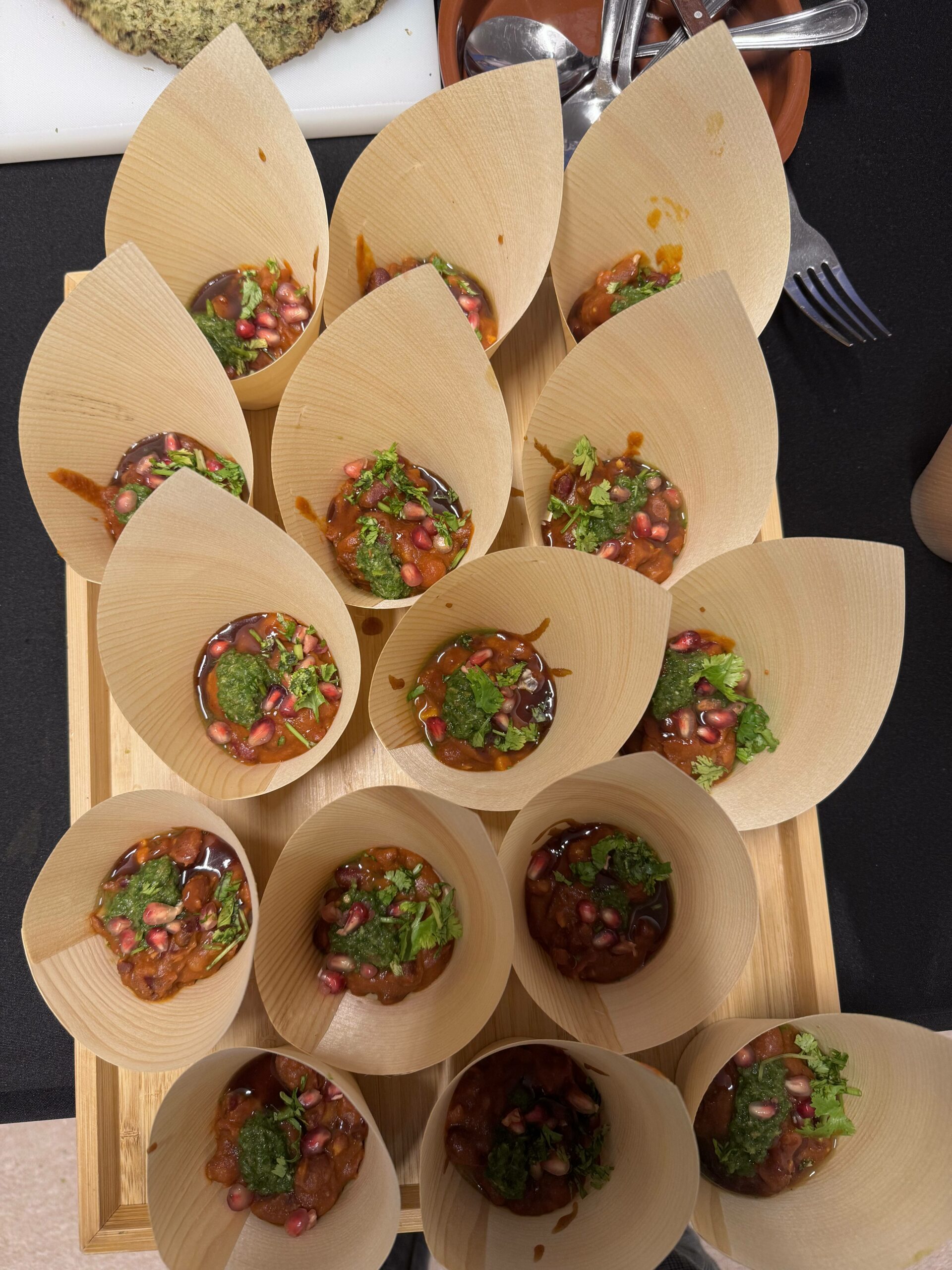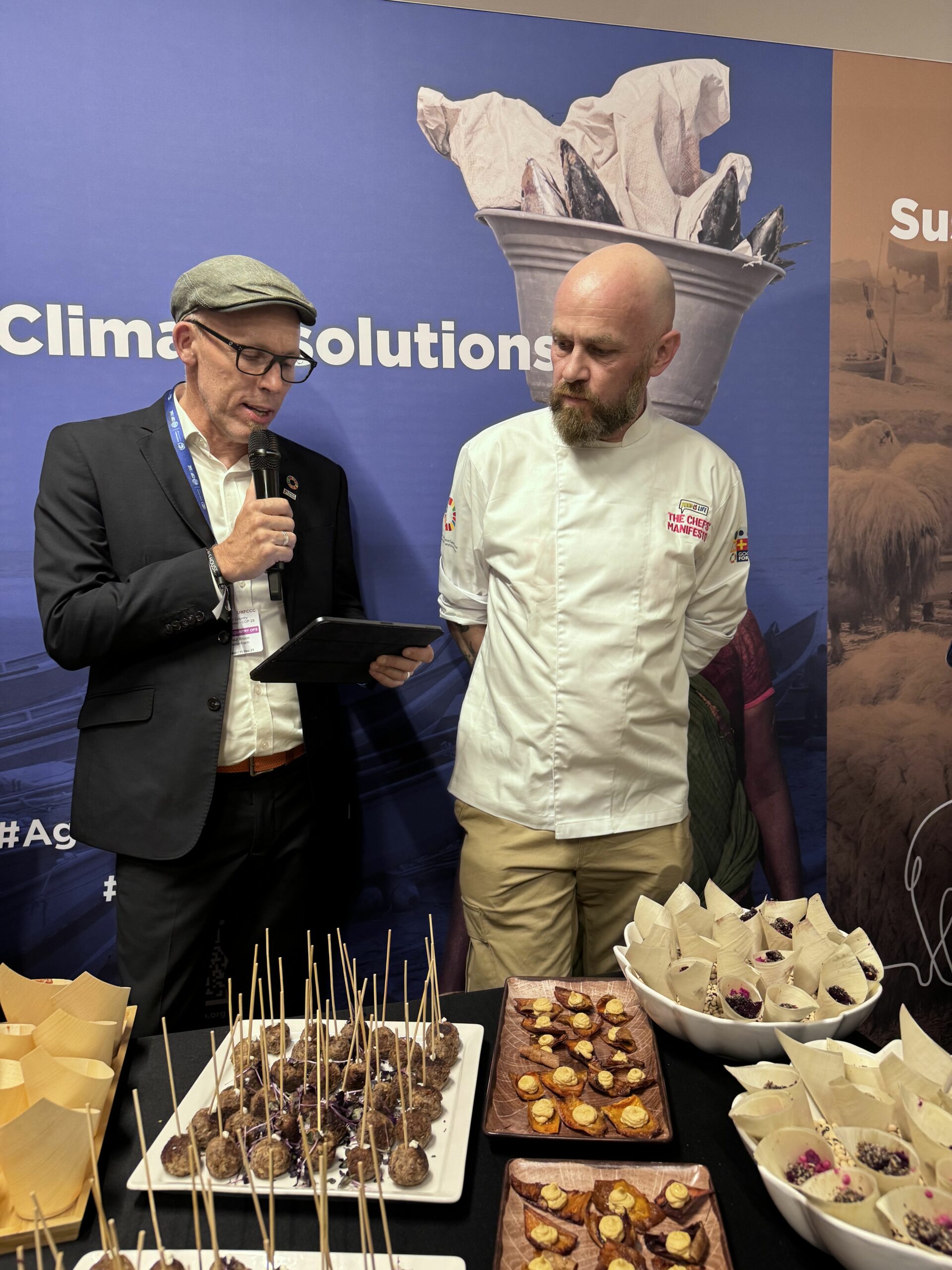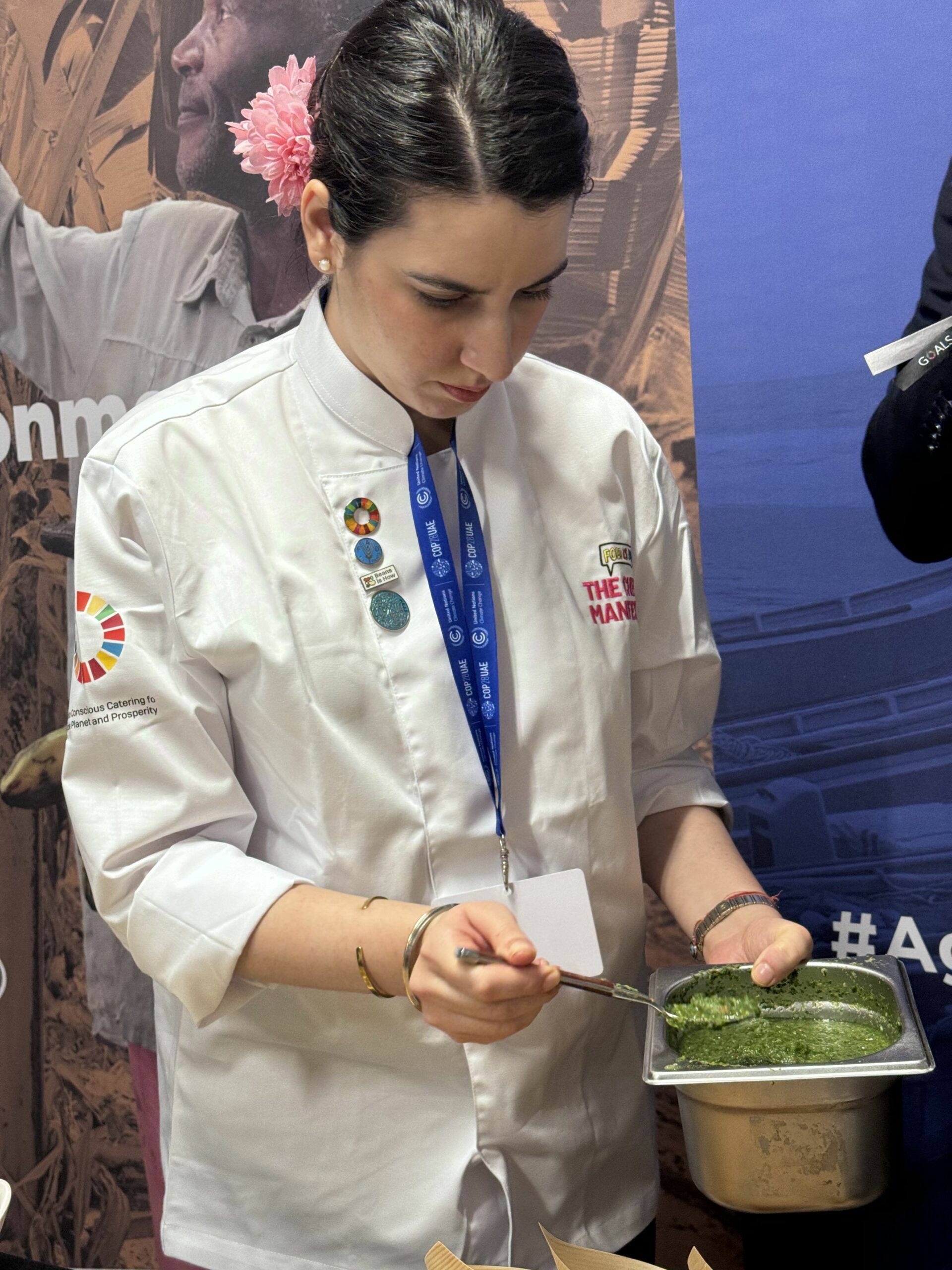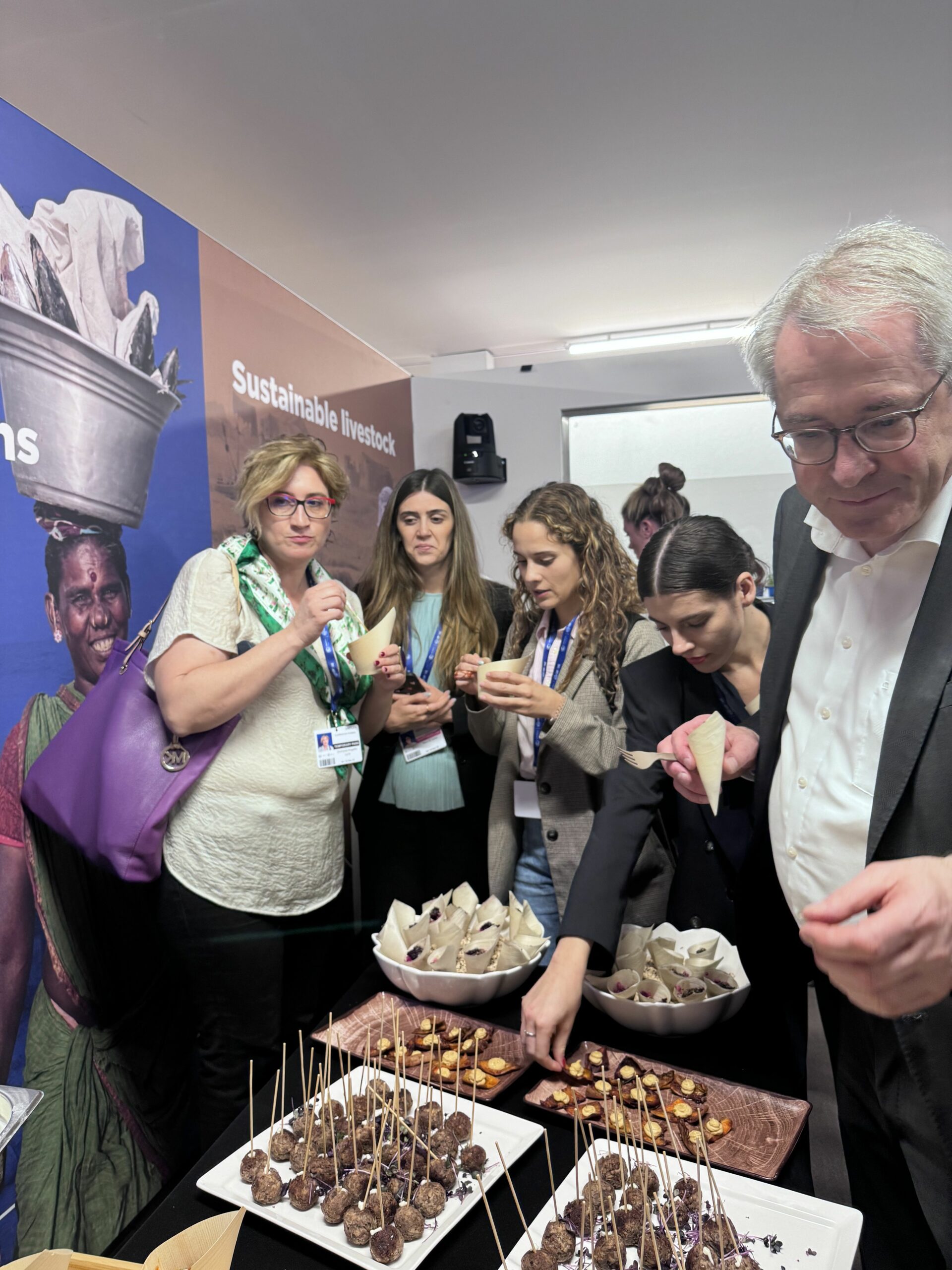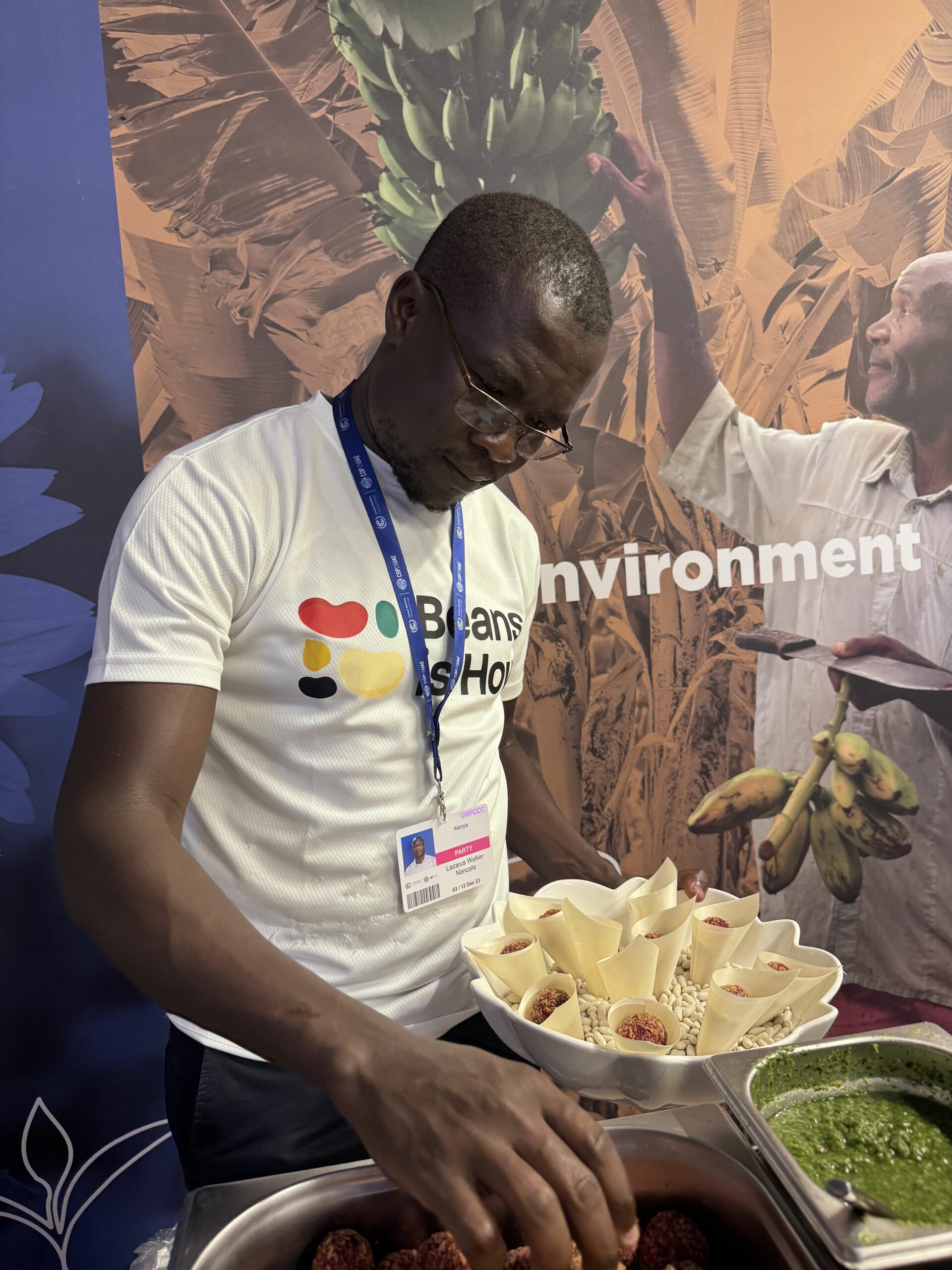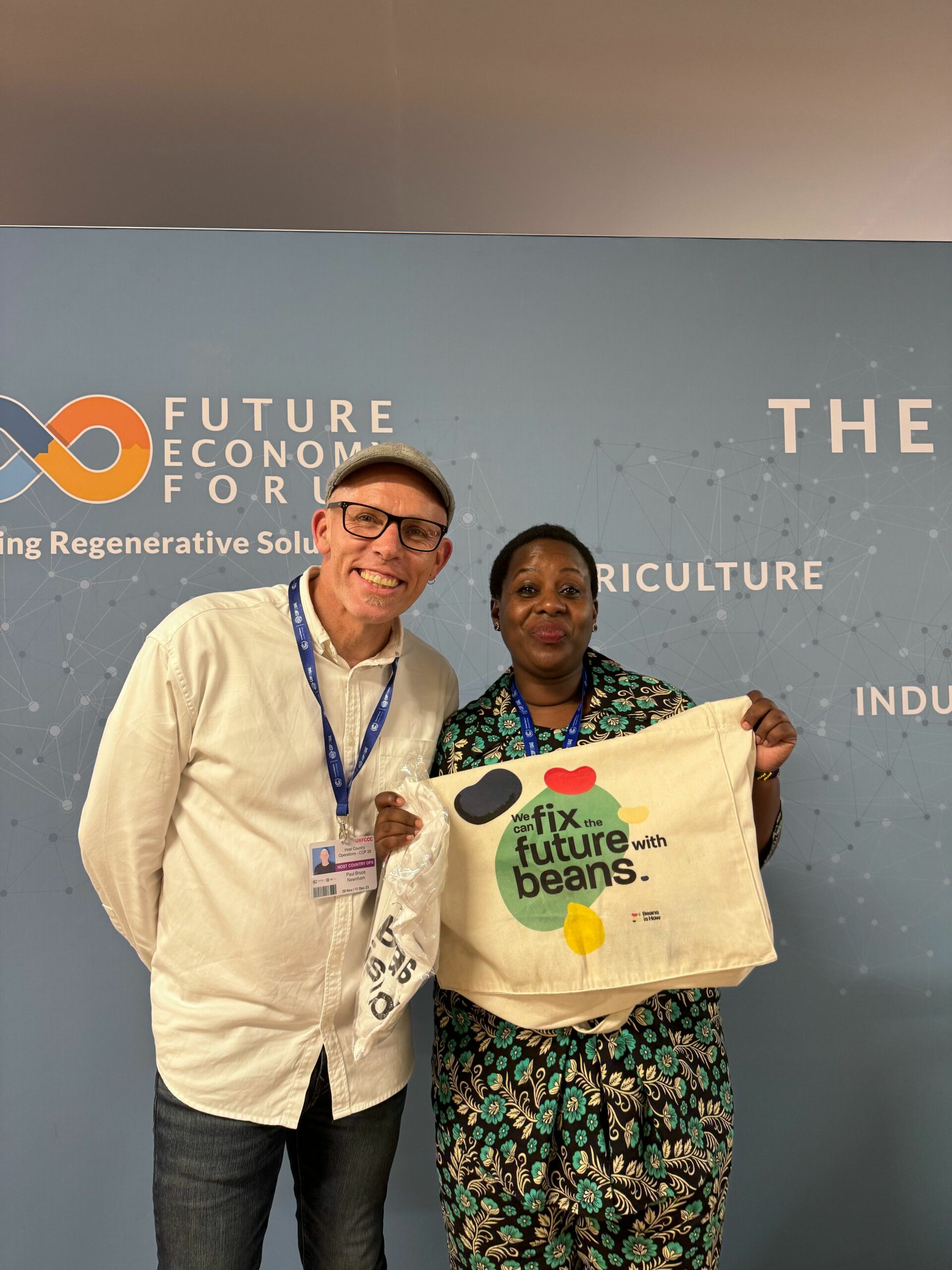
Beans is How was on the ground at COP28 advocating for the importance of climate friendly diets and increasing bean consumption. This was a milestone for the campaign which was officially launched at COP27, we are one year old!
Beans is How and partners held events looking across the value chain and food systems transformation, that brought together partners and actors from production, supply, retail, hospitality and more. One of the events organised by the BiH campaign “Accelerating climate adaptation through championing Beans in Africa” focused on improving bean production and consumption in Africa to fight climate change, hunger and malnutrition.
A second event organised together with the Global Pulse Confederation hosted a discussion and reflections on production and consumption, in the form of a dynamic dialogue and debate on “What will drive global pulses consumption, supply or demand”.
Additionally, working with the Chefs’ Manifesto Food Champions, and under the SDG2 Advocacy Hub, there were key opportunities to advocate for beans through a variety of sessions and speaking engagements at COP28. Involvement across Climate Conscious Catering, sustainable hospitality, food loss and waste, with key partners from the Food Pavilions, UN Global Innovation Hub, and many others, Beans is How was able to lend its voice on climate friendly diets and food that is healthy for people and the planet.
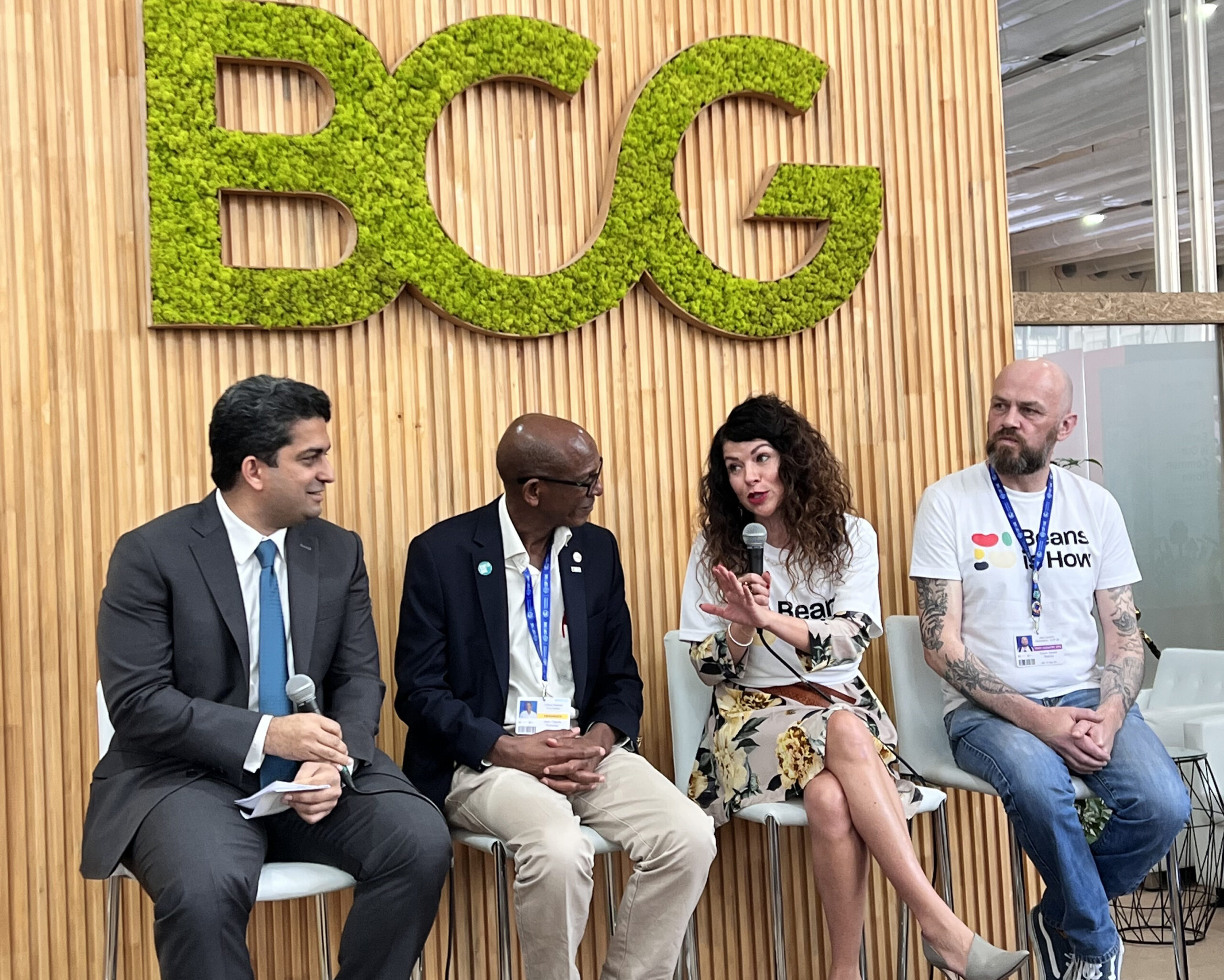
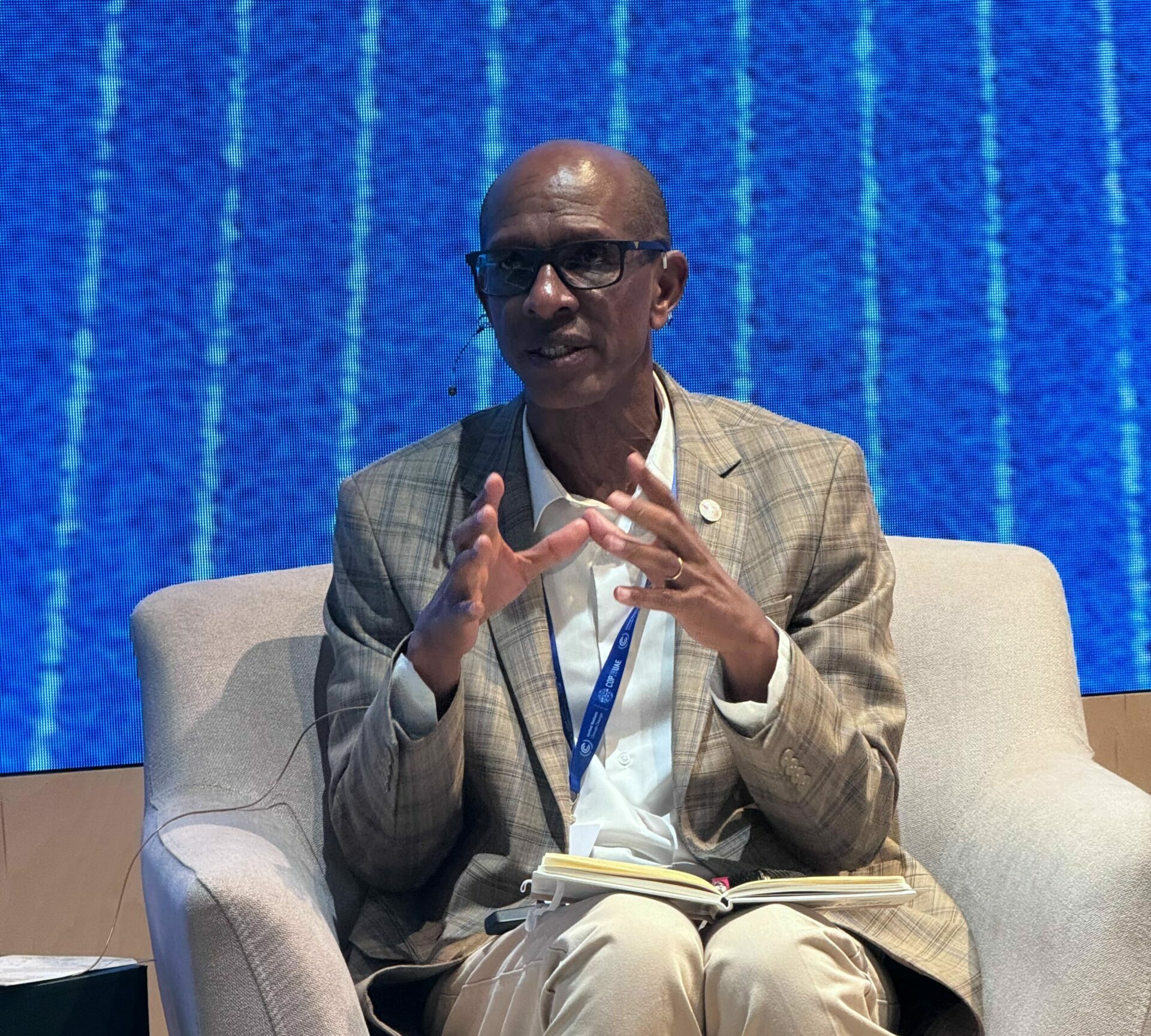
Key Takeaways
COP28 was held at a time when the world is facing a host of challenges including biodiversity loss, more people are undernourished and other difficulties facing the food system. Javier Mateo of CGIAR noted that these challenges affect people around the world in different ways, but are all fueled by climate change.
Beans can help us achieve this transformation of food systems required to benefit people of all incomes. Daily consumption of bean varieties rich in zinc and iron can help bridge the micronutrient deficiencies and by increasing bean consumption which will increase income for farmers. Beans is How partners such as the Pan African Bean Alliance (PABRA) have been breeding bean varieties since 1996 and have been critical in scaling up production, consumption and helping smallholder farmers. Jean Claude Rubyogo, CGIAR-Global Bean Program Leader and PABRA Director talked about the role of adequate production, productivity and breeding short duration, climate smart varieties that can be harvested in 2 months, are all key in beating the climate challenges. Research and innovation and identifying the right environment and enabling environment is key and PABRA does this in partnership with CGIAR.
Vijay Iyengar, Board President of the Global Pulse Confederation reiterated the need to continue to ensure that pulses are in the ears and eyes of consumers beyond just the UN year of pulses and international pulse day. Silvia Pastorino, Research Consortium, School Meals talked about the need for menu changes to put more beans in schools. Children are forming dietary practices that will become part of their lives and introducing beans early is important especially because beans are high in micronutrients and fibre which is usually lacking in children’s diets. Roy Steiner, Vice President Food Initiative, Rockefeller Foundation reiterated that “Beans are revolutionary as they create so much value that we have not fully exploited”. Paul Newnham, Executive Director of the SDG2 Advocacy Hub, made a call for action to continue to drive action through the Beans is How campaign by taking innovative joint and individual actions, and working to influence Policy guidelines together with research partners and country actors.
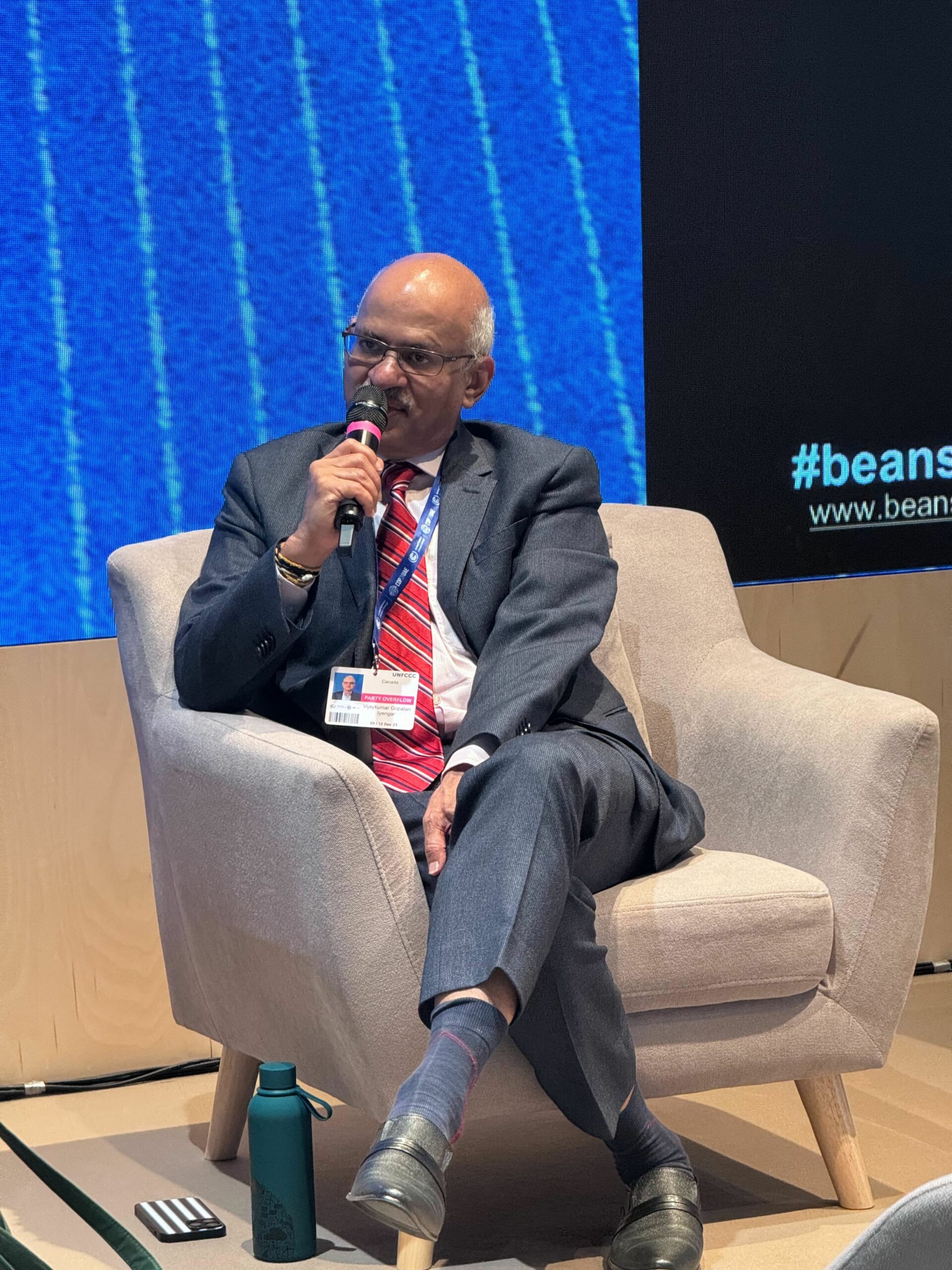
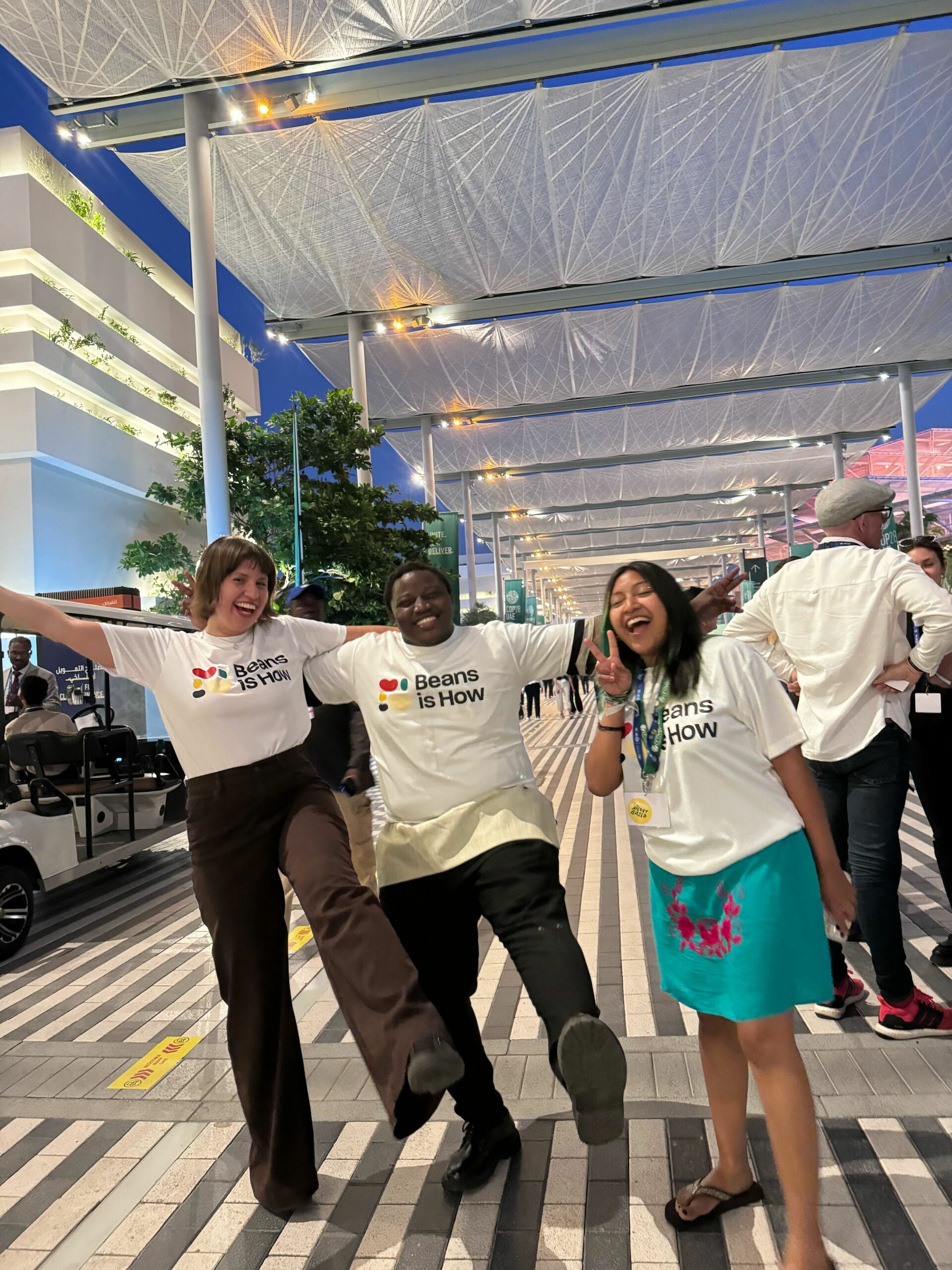
Conclusion
Discussing beans at COP was important because food systems are responsible for around 30% of greenhouse gas emissions. There is a need to change the way we produce and consume the food we eat, particularly in high and middle income countries. Beans and other pulse crops can play a critical role in the transition towards a more sustainable agri-food system with the potential to address the climate-biodiversity-nutrition nexus whilst increasing the resilience of local and global food systems.
COP28 offered an unprecedented stage for food and the future of food that is good for people and the planet. As such solutions that are viable and have good potential to drive sustainable change should be championed. For instance, incorporating beans into agricultural practices can improve soil and water quality as beans reduce the need for synthetic fertilisers by converting atmospheric nitrogen into a plant usable form. In addition, beans are delicious, versatile, culturally-responsive, and can improve livelihoods. They have been part of many global cuisines for millennia, and can boost incomes for small-scale farmers, many of whom are likely to experience poverty and hunger. Including beans in school feeding guidelines is a key action which can create demands for beans.
